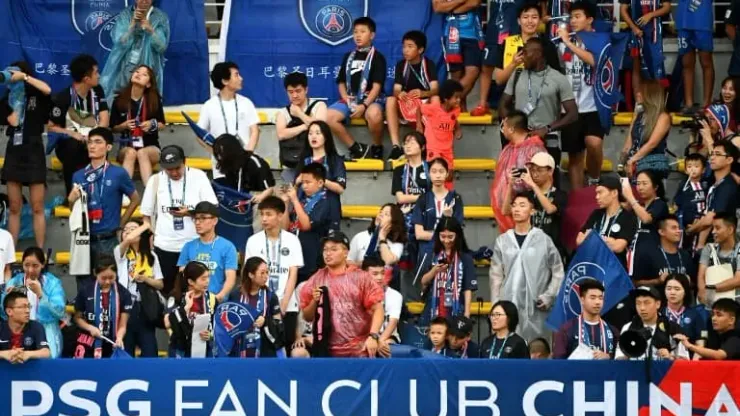Shanghai (AFP) – Bayern Munich and Paris Saint-Germain clash in the Champions League final on Sunday in Lisbon but on the other side of the globe they are also engaged in another high-stakes competition.
China, the world’s most populous country and second-biggest economy, is a battleground for major European football clubs as they chase the disposable incomes of its growing middle class.
The final kicks off at an unsociable 3:00 am Monday in China but Bayern say there will be viewing parties for their fans in over 30 Chinese cities.
PSG’s Chinese supporters — many wearing the name of Brazilian star Neymar on their backs and hoping to see the club win the Champions League for the first time — will also be out in numbers for a match that will be broadcast on state television and streamed online.
Bayern believe they have over 110 million Chinese “followers”.
Such figures are hard to nail down and followers is a loose term, but on the Twitter-like Weibo they have 4.2 million. PSG have 1.9 million, although that is only one measure to go by.
Bayern have been champions of Europe five times, most recently in 2013, but say that reaching the final once more has had a tangible impact on their profile in China.
“We can already feel and see it,” said Rouven Kasper, head of Bayern’s office in Shanghai since it opened in 2016.
More than that, Kasper said the stylish way they surged into the final — demolishing Lionel Messi’s Barcelona 8-2 on the way — generated extra buzz.
“They’re playing incredibly attractive football,” he said of the German champions.
“They’re very sharp, very pressing, also very, very aggressive, but attractive, shooting, many goals.”
Kasper said that “we also have the players which for the Chinese market are very attractive”.
Bayern’s German international forward Thomas Mueller is especially popular in China, said Kasper, and with 6.1 million on Weibo has more followers than the club.
Mueller’s winning mentality but with a humble nature is “also the DNA of Bayern Munich”, said Kasper.
Kasper believes that German football’s early return during the coronavirus pandemic — it was the first major European league to restart, in May — put Bundesliga clubs in the shop window.
“For sure it was an advantage that we had the whole stage just for us,” he said.
– ‘PSG the club of new generation’ –
PSG’s Qatari owners made China a priority “from day one” when they took over the French club nearly a decade ago, said Sebastien Wasels, Asia-Pacific managing director.
They launched their Weibo account in 2013 and have a presence across five social media channels in China.
“China has always been extremely important to us and that’s one of the reasons why we toured with the first team in China for the past two years. Last year all of our Asia tour was in China,” said Wasels.
“I don’t recall any club that spent that much time in China for their summer tour.”
PSG, a relatively young club having been founded in 1970 — Bayern go back to 1900 — are trying “to go in a different direction to try to target a different audience than the traditional football audience”, said Wasels.
They have teamed up with a well-known Chinese eSports team, LGD Gaming, in the hope of turning gamers into PSG fans.
“We are really trying to be the club of the new generation… it is in our interest to make sure that those young fans who do not have a club yet become PSG fans,” said Wasels.
The signings of Neymar and French prodigy Kylian Mbappe in 2017 had helped double the club’s fanbase in the country, he said.
He declined to give numbers of fans or followers — citing their inaccuracy — but believes that PSG are “probably the fastest-growing football club in China”.
Champions League glory, at last, would give PSG another rocket-boost.
“We doubled it (fan numbers) in three years by the acquisition of two top, top players and tours in China, so maybe we can expect something similar,” he said.
200+ Channels With Sports & News
- Starting price: $33/mo. for fubo Latino Package
- Watch Premier League, Women’s World Cup, Euro 2024 & Gold Cup
The New Home of MLS
- Price: $14.99/mo. for MLS Season Pass
- Watch every MLS game including playoffs & Leagues Cup
Many Sports & ESPN Originals
- Price: $10.99/mo. (or get ESPN+, Hulu & Disney+ for $14.99/mo.)
- Features Bundesliga, LaLiga, Championship, & FA Cup
2,000+ soccer games per year
- Price: $5.99/mo
- Features Champions League, Serie A, Europa League & Brasileirāo
175 Premier League Games & PL TV
- Starting price: $5.99/mo. for Peacock Premium
- Watch 175 exclusive EPL games per season






